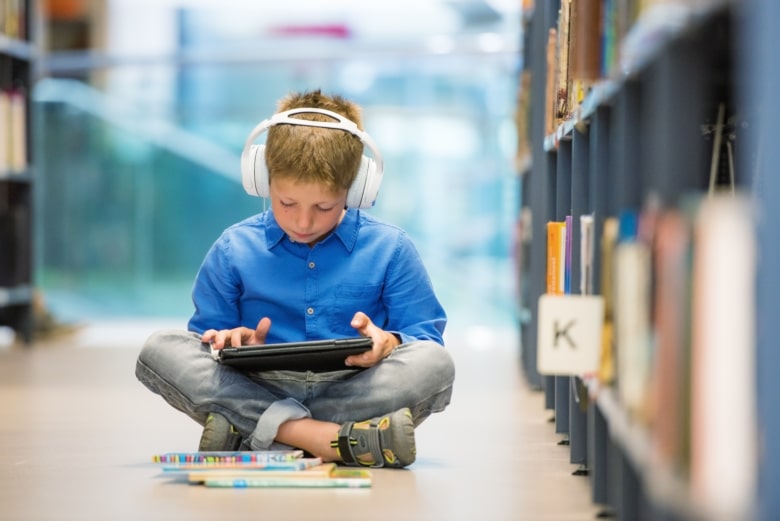Lithuanian Public Libraries Welcome People with Autism

In Lithuania, as with the rest of the world, the number of autism cases is increasing. Although individuals with autism vary widely in the type and severity of symptoms they experience, many face challenges in social interactions, sensory sensitivity, and linguistic and non-linguistic communication. Parents of children with autism spectrum disorder often avoid public places because in most cases they are not suitable for their children.
Public libraries are public institutions and should be available to and accessible by anyone; however, this is not always the case in reality. Research indicates that individuals with autism spectrum disorder identify the library as a great place to relax, learn, and spend quality time. In a recent survey, about 90 percent of families with autistic children said that they would visit libraries more often if they were more adapted to their needs.
Ingrida, a mother of a son with an autism spectrum disorder, commented on the challenges of introducing her son to a new environment with such specific behavioral expectations of its patrons. She emphasized the importance of teaching basic rules of visiting a library environment to clarify acceptable behaviors. For example, when you take a book from a shelf in a library, it is expected that you put it back on the shelf. Additionally, introducing an autistic patron to proper library etiquette is not as simple as telling them to sit quietly or stay calm. People with an autism spectrum disorder need to learn to live in society, and society also needs to learn to accept and understand this socially-sensitive group.
Jacob’s mother, Živilė, says that many individuals with an autism spectrum disorder have an easier time processing information with visual cues. Using adapted text and pictures is crucial to familiarizing individuals with autism with unfamiliar environments and situations. For example, it would be helpful for libraries to provide visual information depicting for example where certain books are placed and where the toilet is. Živilė describes the unique challenges that families with autism face going out in public. There is a great deal of anxiety around not knowing how their autistic loved one will behave in a public library and how others might react to their behavior.
Since November 2020, the doors of Lithuanian public libraries have been decorated with a colorful logo with the slogan “Library for everyone”. This is a sign that the library is becoming an even more open and friendly place for all individuals despite their differences.
The project titled “Implementation of a network of libraries friendly to people with autism spectrum and other language, communication and behavioral disorders” was financed by the Ministry of Culture of the Republic of Lithuania.
Lithuanian public libraries offer social stories and posters that help visitors with autism spectrum disorder prepare for a visit to the library. The social stories that visitors will find on the library websites allow them to get acquainted with the library spaces, rules, and staff.
To help individuals with autism to manage anxiety, calm down, and relax, a special toolkit has been prepared for each of the public libraries. It consists of sensory, tactile, audio, and visual aids. In addition, library staff have been provided with additional training regarding how to interact with and help autistic children in the library.
The fact that Lithuanian libraries are becoming friendlier to this community is a big step forward, giving hope that other public institutions will follow this beautiful example.
AgnÄ NorkutÄ
2020
To learn more, contact the Šiauliai County Povilas Višinskis Public Library.
The views expressed in this paper are those of the author(s) and do not necessarily represent the views of the NLM Family Foundation.
